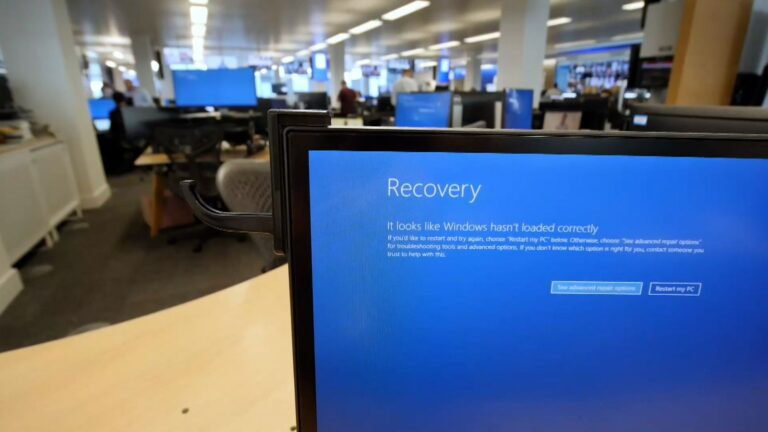“It’s all your fault” or about the responsibility of the Project Manager (Practical advice from RP)
RP is a person who is personally responsible for the final result of the work of other employees. Some are sure that an RP is a person who can talentedly delegate his responsibility (not work, but responsibility). This is not a RP – this is… Project Administrator.
It took me a while to get used to it, no one told me how it works.
RP is the first experience of real responsibility not only for oneself, but also for the team. Responsibility for the team and the work means exactly one thing: you are responsible for others and for the results of their work. Their joint = your joint. Their mistake = your mistake. And if your team plays poorly, most likely not the whole team will be fired, but you. Even if you warned, even if you spoke.
This may seem unfair and dishonest: I did everything well, someone else made a mistake – punish him. But this doesn’t work in the world of agreements.
The world of business is a world of agreements. Here any manager gives his word. Based on this word, managers give their word, and on their basis KPIs of top management are built. All together it looks something like this:

The RP here is at the very bottom, but he is already responsible for his brick. The diagram shows what happens if the RP does not keep his word and does not carry out the project as agreed: first he sets up his manager, and then the CEO. And this is a very simplified diagram. In a more or less large company there are hundreds, or even thousands, of projects. And the CEO won’t figure out why every little brick broke. In general, if you are given the word to deliver a brick, it must be delivered, otherwise the entire structure of agreements and plans will collapse. That's exactly how it works.
If you look at an integrator company, the scheme will be similar, only in integrators it is even more fun: the money for completed projects is the salary of the company’s employees. RP does not deliver the project – tomorrow the company has nothing to pay people’s salaries. Of course, this is an extreme case; this usually does not happen, because the management of the integrators tries not to unnecessarily traumatize unprepared managers with additional responsibility. But this is really true. If the integrator’s distribution center delays the receipt of money, it creates problems for the financial department on the topic “where to get the money for the salary.”
Limits of responsibility
Here it is important not to go to the extreme of “I am responsible for everything, I am to blame for everything”: this also happens to beginners. There are things that the RP can change, and there are things that the RP cannot change.
What RP can change: The PM must see the risks of the project and know before starting the project what he will do about these risks. For example, you can take the list of problems from above:
the employee promised to do it and didn’t do it: include additional time or employee in the plan;
the customer did not formulate the requirements properly, and now does not want to accept the work: detail the technical specifications and be sure to agree with the customer;
the manager swears that the work was not completed on time, although it was he who did not approve the start of work for a month: Allow time for this;
employees complain that they are forced to work on weekends: budget money for weekend work and pizza for the team;
the contractor screws up and does not fulfill the contract: squeeze the contractor's deadlines by 1.5-2 times (it will still violate these deadlines, but it will be on time in yours).
Briefly speaking: Before starting the project, the project manager must include the risks and their solutions within the time frame and budget of the project. And if something doesn’t go according to plan, do everything you can to fix it.
What RP can’t change: RP will not be able to provide for everything. The customer decided to cancel the project in the middle of the project and not pay the money. A critical part of the team is sick and there is no replacement. The management demanded that the deadlines be reduced by 5 times, but in reality it can only be reduced by one and a half times. And so on.
Here the RP is important to remember that:
If you have done everything to resolve the issue, but it is not resolved, there is no need to remain silent, you need to escalate;
Any problems must be discussed in advance (I will describe the type and format in a separate article, but in general I talked about this in my TG channel). It’s normal to overnegotiate, but a business crime is to report that you didn’t make it on the day of delivery.
Briefly speaking: RP is not God, he is just a manager who must try to foresee the problem, if he has not foreseen it, solve it at his level, and if he has not decided it, escalate it to management.
Bottom line
Once upon a time I listened to a conference about management, and there one RP said that the transition to management is as if you are from a valley where the birds are singing, everything is warm and nice, you find yourself in the cold mountains, where there is snow in your face, you can’t breathe and There are only problems all around. “Airless space.”

Yes, it may seem so if you do not understand how the mechanism of delegation of responsibility works: what can be delegated and what cannot, what you are responsible for, and what your manager is already responsible for.
Once I figured this out, it became easier for me. I explained the same thing to my managers: “if you have done everything you could, prepare the correct escalation to the manager and do not hesitate to go to him.”
Well, I will write separately how to properly escalate to a manager.
Thank you for your attention!





